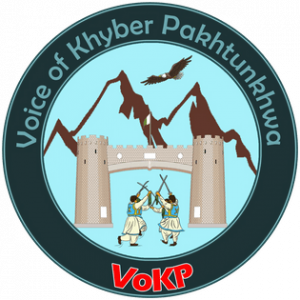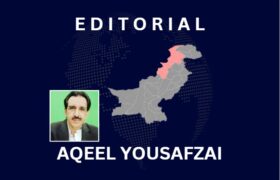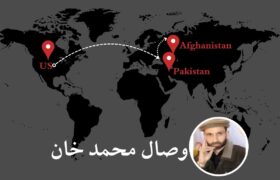Hassan Sajid
Khyber Pakhtunkhwa (KP) is not only one of the most beautiful provinces of Pakistan but also a land rich in natural resources. From its breathtaking landscapes, such as the Swat Valley and Kaghan Valley, to its abundant mineral deposits, including gems and precious metals, KP holds immense potential for economic growth and development. The province’s leaders have a tremendous opportunity to harness these resources more effectively, which could lead to significant progress and widespread societal benefits.
KP’s natural beauty, with its majestic mountains, lush valleys, and vibrant cultural heritage, makes it a prime destination for tourism. The development of tourism infrastructure could transform the local economy by creating jobs, attracting foreign investment, and boosting local businesses. Properly managed tourism can also preserve the environment and cultural sites, turning KP into a hub for eco-tourism and cultural tourism.
Unfortunately, the current priorities of the KP government do not seem to align with the stability, progress, and development that the province so desperately needs. By realigning their focus towards sustainable resource management, infrastructure development, and tourism, KP can achieve the prosperity it is capable of.
The province has abundant economic resources, including fertile agricultural land, forests, and water resources. KP can substantially increase its economic output by investing in modern agricultural techniques, enhancing irrigation systems, and supporting small and medium enterprises. These efforts would not only improve food security but also boost exports and generate revenue for the province.
Due to its numerous rivers and mountainous terrain, KP has immense potential for hydroelectric power generation. Developing hydroelectric projects could provide a sustainable and renewable energy source, reducing the province’s dependence on fossil fuels and addressing the chronic power shortages that plague the region. This would also attract industries that rely on stable power supplies, further boosting economic development.
The province is rich in mineral resources such as marble, gemstones, and precious metals. Proper exploration and mining, emphasizing environmental sustainability and local job creation, could transform KP into a mining powerhouse. This sector has the potential to generate substantial revenue, which could be reinvested into the province’s infrastructure and public services.
KP stands at a critical juncture following the 2024 elections; the political leadership must shift its focus toward stability and development. Despite the immense potential, KP’s leaders have repeatedly failed to prioritize development and public welfare. The recent 2024 elections saw the Pakistan Tehreek-e-Insaf (PTI) party secure a position in KP for the third time.
However, PTI leaders have shown little progress in development initiatives. The focus has been more on political rhetoric and disputes rather than tangible development efforts for the province.
The contrast between KP and Punjab’s leadership is stark. In Punjab, Chief Minister Maryam Nawaz has introduced numerous programs aimed at provincial progress, including the Digital Rozgar initiative, the Dastak App for citizen services, the Apna Chat Apna Ghar project, providing youngsters with electric bikes, and much more. A special Ramadan Ration Program was also launched to support people in need. These initiatives reflect a clear vision for development and public welfare.
In KP, the situation is disheartening. Leaders like Ali Amin Gandapur have not introduced significant programs for the province’s development. Instead, internal disputes, such as the ongoing conflict between the Governor and the Chief Minister, have taken precedence over governance and public service. As a result, the public is suffering from unemployment, poor infrastructure, and soaring inflation. The province’s debt burden has surged to Rs 530.72 billion in the fiscal year 2022-23, a clear indicator of financial mismanagement and lack of strategic planning.
The people of KP are bearing the brunt of this negligence. With 18-hour power outages, rampant unemployment, and an unmanageableinflation rate, the quality of life has deteriorated significantly. The provincial government’s mismanagement and lack of vision are evident, and the urgent need for a shift in priorities cannot be overstated.
For KP to realize its potential, the political leadership must prioritize stability and development. This requires a collaborative approach with the federal government, implementing effective policies, and focusing on public welfare. KP can transform into a progressive province by investing in infrastructure, education, healthcare, and economic development.
Tourism Development: Invest in infrastructure, marketing, and training to develop a sustainable tourism industry.
Economic Reforms: Support agricultural innovation, enhance irrigation systems, and promote local businesses.
Power Projects: Develop hydroelectric projects to ensure a stable and renewable energy supply.
Mining Initiatives: Implement sustainable mining practices and share the benefits with local communities.
Good Governance: Resolve internal disputes, focus on policy implementation, and achieve financial stability.
KP has the resources and potential to become a beacon of progress in Pakistan. However, this can only be achieved if the political leaders prioritize development over political theatrics. Stability, vision, and commitment to public welfare are essential for the province’s growth and prosperity. The time for action is now, and the people of KP deserve nothing less.





